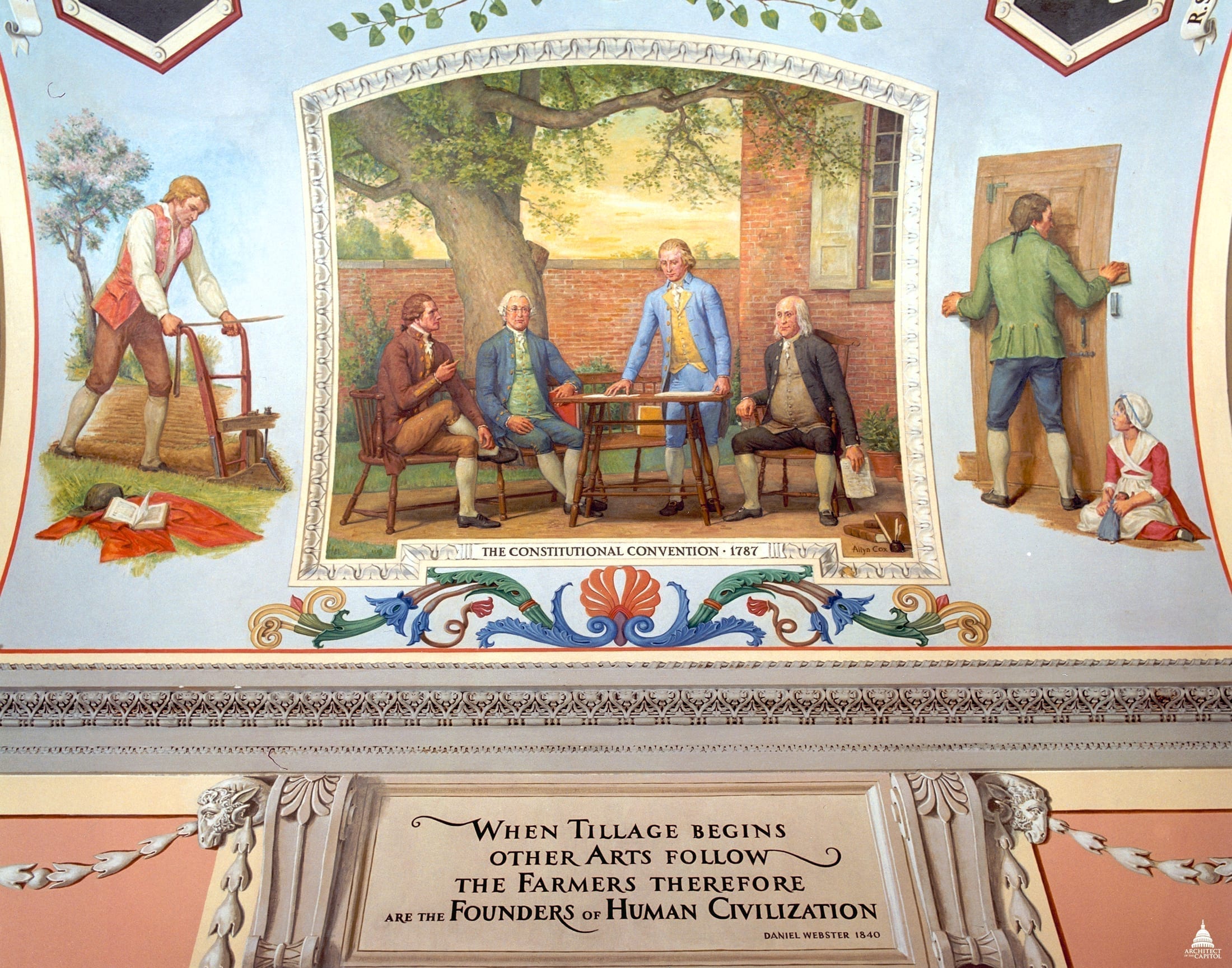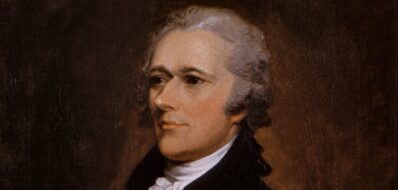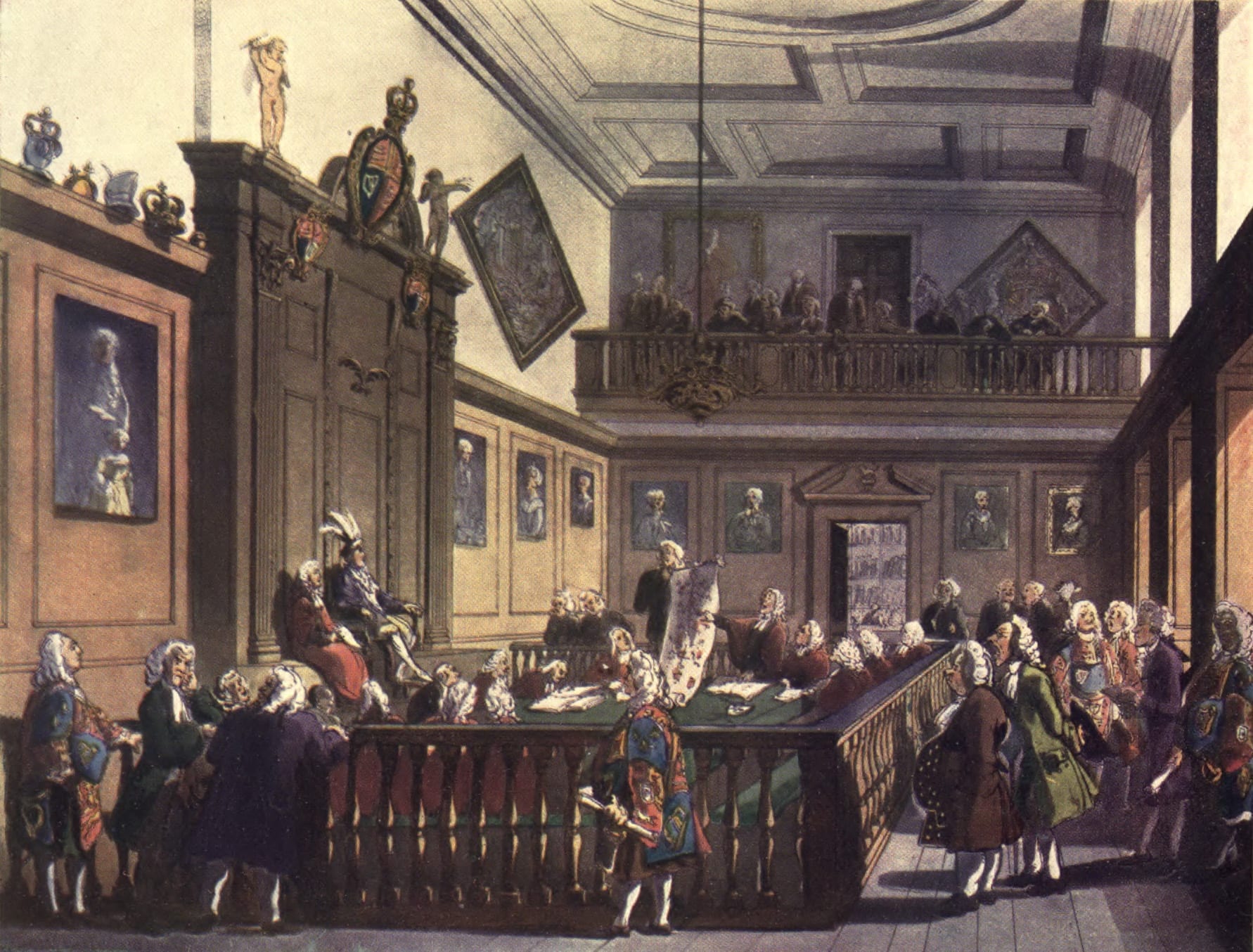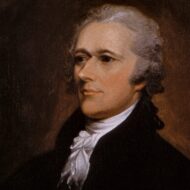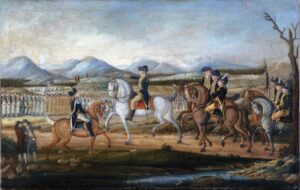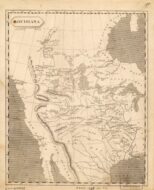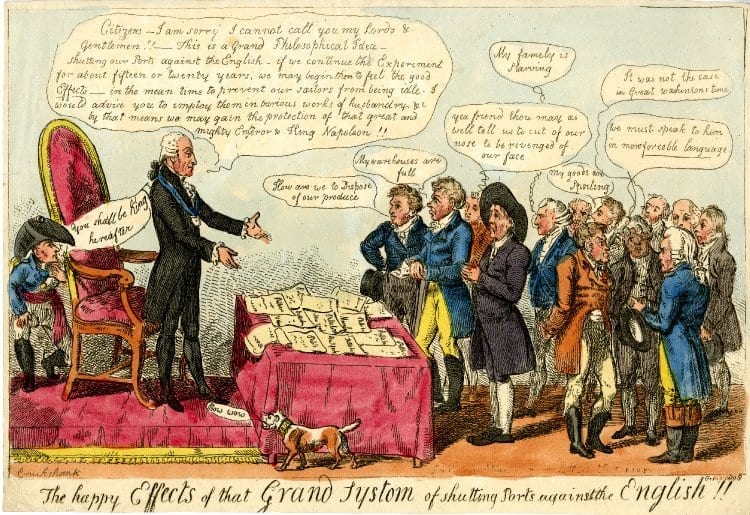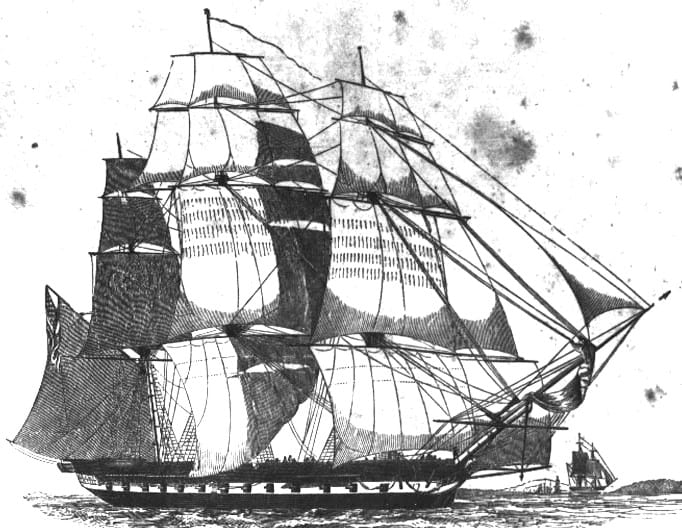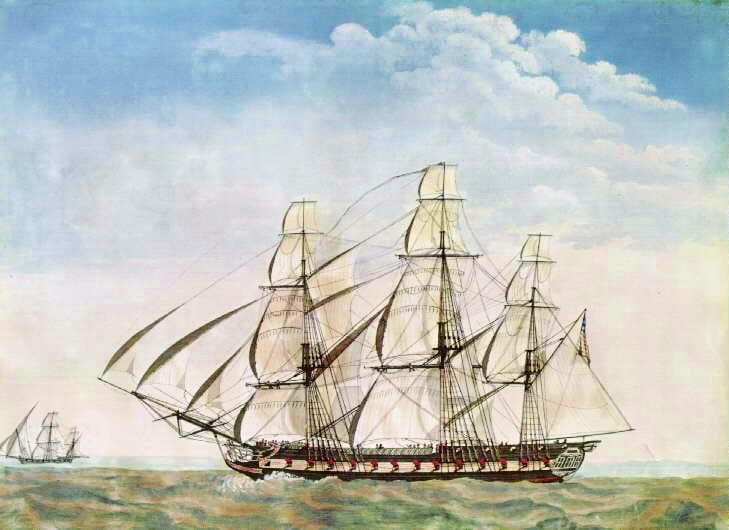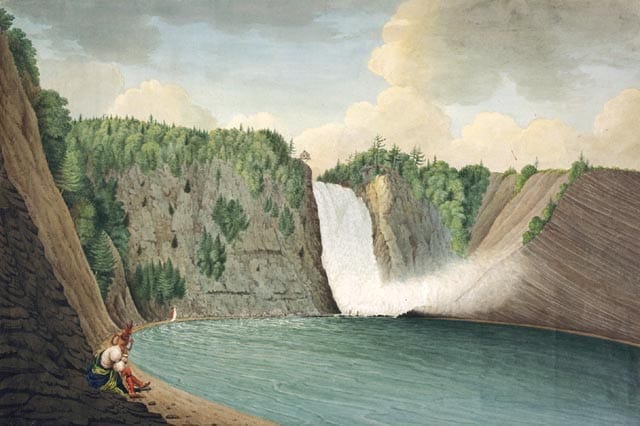


Introduction
In the Treaties of Paris (1783), which concluded the war of the American Revolution, and San Lorenzo (1795) with Spain, the United States had laid claim to all the lands east of the Mississippi and south of British Canada, except for the Spanish provinces of Florida. The security of those lands was jeopardized when in 1800 Emperor Napoleon of France reacquired from Spain the vast territory west of the river and east of the Continental Divide known as Louisiana. Napoleon had dreams of establishing a French empire in the New World, which would put him in a position to deny America access to the Mississippi River and the vital port of New Orleans. Alarmed, President Thomas Jefferson ordered American diplomats Robert Livingston and James Monroe to seek to purchase New Orleans and all or part of the Floridas (if the latter had also been ceded by Spain) from France. To the American diplomats’ astonishment, Napoleon—about to resume war with Britain and facing a military disaster in the Caribbean—offered to sell Louisiana as a whole. They almost instantly accepted, without any authority to do so, signing the agreement April 30, 1803. The total cost was $15 million, larger than the entire annual federal budget, but the purchase roughly doubled the size of the nation. Jefferson announced the purchase in Washington on July 4, 1803.
The announcement precipitated a constitutional controversy. The Constitution did not explicitly authorize the federal government to acquire new territories. Nor did it provide for the incorporation of peoples residing in those territories—roughly 50,000 whites, mostly French and Spanish, and free and slave blacks—and perhaps as many Indians. (The population in the Union at that time was 5.3 million.) Nonetheless Jefferson and most of the country embraced the expansionist thrust despite opposition from the Northeast and the Federalist Party. Jefferson contemplated seeking a constitutional amendment but was uncertain it would be adopted. Time was of the essence. He rationalized the legality of his actions by invoking “the laws of necessity, of self-preservation, of saving our country when in danger”—which, coming from a strict constitutional constructionist, opened wide the scope for future expansion. The president envisioned the immense but essentially unexplored Louisiana region as “an empire for liberty” large enough to absorb the flood of Americans westward for many generations—ideally as part of a greater Union, but possibly going their own way in due time, yet remaining American.
“From Thomas Jefferson to John Breckinridge, 12 August 1803,” Founders Online,
National Archives, https://founders.archives.gov/documents/Jefferson/01-41-02-0139.
The enclosed letter,[1] though directed to you, was intended to me also, and was left open with a request, that when perused, I would forward it to you. It gives me occasion to write a word to you on the subject of Louisiana, which being a new one, an interchange of sentiments may produce correct ideas before we are to act on them.
Our information as to the country is very incomplete; we have taken measures to obtain it in full as to the settled part, which I hope to receive in time for Congress. The boundaries, which I deem not admitting question, are the high lands on the western side of the Mississippi enclosing all its waters, the Missouri of course, and terminating in the line drawn from the northwestern point of the Lake of the Woods[2] to the nearest source of the Mississippi, as lately settled between Great Britain and the U.S.[3] We have some claims to extend on the sea coast westwardly to the Rio Norte or Bravo,[4] and better, to go eastwardly to the Rio Perdido,[5] between Mobile & Pensacola, the ancient boundary of Louisiana. These claims will be a subject of negotiation with Spain, and if, as soon as she is at war, we push them strongly with one hand, holding out a price in the other, we shall certainly obtain the Floridas, and all in good time. In the meanwhile, without waiting for permission, we shall enter into the exercise of the natural right we have always insisted on with Spain, to wit, that of a nation holding the upper part of streams, having a right of innocent passage through them to the ocean. We shall prepare her to see us practice on this, & she will not oppose it by force.[6]
Objections are raising to the eastward[7] against the vast extent of our boundaries, and propositions are made to exchange Louisiana, or a part of it, for the Floridas. But, as I have said, we shall get the Floridas without, and I would not give one inch of the waters of the Mississippi to any nation, because I see in a light very important to our peace the exclusive right to its navigation, & the admission of no nation into it, but as into the Potomac or Delaware,[8] with our consent & under our police.[9]These federalists[10] see in this acquisition the formation of a new confederacy, embracing all the waters of the Mississippi, on both sides of it, and a separation of its eastern waters[11] from us. These combinations depend on so many circumstances which we cannot foresee, that I place little reliance on them. We have seldom seen neighborhood produce affection among nations. The reverse is almost the universal truth. Besides, if it should become the great interest of those nations to separate from this, if their happiness should depend on it so strongly as to induce them to go through that convulsion, why should the Atlantic states dread it? But especially why should we, their present inhabitants, take side in such a question?[12]
When I view the Atlantic states, procuring for those on the eastern waters of the Mississippi friendly instead of hostile neighbors of its western waters, I do not view it as an Englishman would the procuring future blessing for the French nation, with whom he has no relations of blood or affection. The future inhabitants of the Atlantic & Mississippi states will be our sons. We leave them in distinct but bordering establishments. We think we see their happiness in their union, & we wish it. Events may prove it otherwise; and if they see their interest in separation, why should we take side with our Atlantic rather than our Mississippi descendants? It is the elder and the younger son differing. God bless them both, & keep them in union, if it be for their good, but separate them, if it be better. The inhabited part of Louisiana, from Point Coupée[13] to the sea, will of course be immediately a territorial government, and soon a state. But above that, the best use we can make of the country for some time, will be to give establishments in it to the Indians on the east side of the Mississippi, in exchange for their present country, and open land offices in the last, & thus make this acquisition the means of filling up the eastern side, instead of drawing off its population. When we shall be full on this side, we may lay off a range of states on the western bank from the head to the mouth, & so, range after range, advancing compactly as we multiply.
This treaty must of course be laid before both Houses, because both have important functions to exercise respecting it. They, I presume, will see their duty to their country in ratifying & paying for it, so as to secure a good which would otherwise probably be never again in their power.[14] But I suppose they must then appeal to the nation for an additional article to the Constitution, approving & confirming an act which the nation had not previously authorized. The Constitution has made no provision for our holding foreign territory, still less for incorporating foreign nations into our Union. The Executive in seizing the fugitive occurrence which so much advances the good of their country, have done an act beyond the Constitution. The Legislature in casting behind them metaphysical subtleties, and risking themselves like faithful servants, must ratify & pay for it, and throw themselves on their country for doing for them unauthorized what we know they would have done for themselves had they been in a situation to do it. It is the case of a guardian, investing the money of his ward in purchasing an important adjacent territory; & saying to him when of age, I did this for your good; I pretend to no right to bind you: you may disavow me, and I must get out of the scrape as I can: I thought it my duty to risk myself for you. But we shall not be disavowed by the nation, and their act of indemnity will confirm & not weaken the Constitution, by more strongly marking out its lines.
We have nothing later from Europe than the public papers give. I hope yourself and all the western members will make a sacred point of being at the first day of the meeting of Congress; for vestra res agitur.[15]
- 1. From Thomas Paine to Breckenridge. Breckenridge (1760–1806) was a senator from Kentucky and Jefferson’s floor leader in the Senate.
- 2. Northwest of Lake Superior, Lake of the Woods forms part of the current border with Canada.
- 3. A convention between the United States and Great Britain signed May 12, 1803, settled this boundary question.
- 4. The Rio Grande, which forms much of the border between Mexico and the United States
- 5. The Perdido River, which forms part of the border of Florida and Alabama.
- 6. The exact boundaries of Louisiana were undefined and soon became a matter of dispute with Spain, which challenged the validity of the purchase to begin with. One matter of controversy was whether Louisiana included West Florida. Spain insisted that it did not.
- 7. The northeastern states, especially those in New England.
- 8. Rivers in the mid-Atlantic states that flow into the Atlantic.
- 9. Jefferson uses the term “police” in a customary eighteenth-century way, meaning not just those individuals who enforce the law, but more generally all means of maintaining public order.
- 10. The Federalist Party, the party of Jefferson’s opponents
- 11. Rivers to the east of the Mississippi that flow into it.
- 12. For the opposition of the Federalist Party to the purchase, see The Transcontinental Treaty and American Expansion.
- 13. An area of Louisiana near the current state of Mississippi.
- 14. A two-thirds majority of the Senate was required to consent to the treaty, but both houses had to pass legislation appropriating funds for the purchase and for administering the new territory.
- 15. “Your interests are involved.”
Annual Message to Congress (1803)
October 17, 1803
Conversation-based seminars for collegial PD, one-day and multi-day seminars, graduate credit seminars (MA degree), online and in-person.






